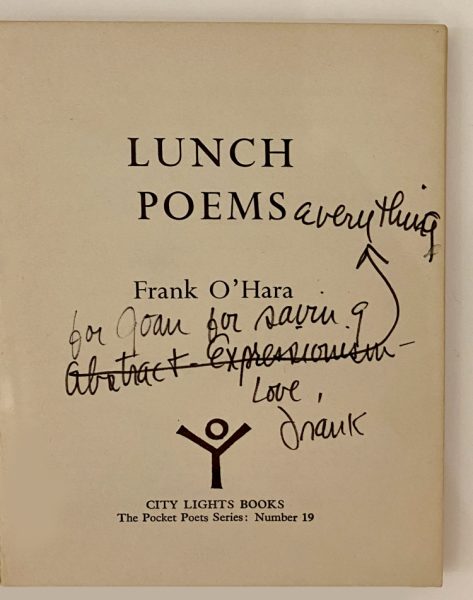Summer of Poetry: Frank O’Hara’s ‘The Day Lady Died’

Dexter Woolley sets the scene surrounding the creation of Frank O’Hara’s ‘The Day Lady Died’.
After running some errands, he sits and writes in the office: “It is 12:20 in New York a Friday, / three days after Bastille day, yes / it is 1959”. It is the middle of summer, July 17, and Frank O’Hara sits and writes a poem on his lunch break. He is in his office at the Museum of Modern Art and he writes a poem. He does this every day. He writes during his lunch break. Lawrence Ferlinghetti, a poet, finds this funny. You should publish these. Call them “Lunch Poems”. Five years later, in 1964, he publishes the poems. He wrote the poems at lunch so he calls them “Lunch Poems”.
“The Day Lady Died” is an elegy to jazz singer Billie Holiday. It is also a “Lunch poem”. It mourns the musician, the figure of popular culture and the 5 Spot Café. It is also about living, working, and buying, in the metropole. O’Hara strolls through the heat of the early afternoon. It’s summer, the sun is high and he’s in the city. This evening he’s getting dinner in Easthampton so gets his shoes shined. He’s walking. Walking “up the muggy street beginning to sun”, buying a “hamburger and a malted”, walking, buying a book of “NEW WORLD WRITING to see what the poets / in Ghana are doing these days”, walking, buying a book of Verlaine’s poetry for Patsy, not buying other books for Patsy, walking, a bottle of Strega from PARK LANE Liquor Store for Mike. Two cartons of cigarettes, two brands. French first; then American. The cover of the New York Post: an image of her face. Everything is tangible, immediate, purchasable. It’s also at a distance. Images: easily reproduced, experienced with a glance.
O’Hara strolls through the heat of the early afternoon. It’s summer, the sun is high and he’s in the city.
“I am sweating a lot by now”: O’Hara sees the news and feels the heat of the city.
O’Hara’s poetry is feverish, instinctive, lacking in punctuation and structure. It is also comforting, almost banal, drawn from routine. O’Hara’s poetry is sociable. It’s about getting ready for dinner with friends, buying poetry books and alcohol, quick communication. The poem is not a site for solitary contemplation – ideas ruminating for days, weeks, months. O’Hara loved to share his work. Write the poem, write it quick, read it, read it to friends. It’s hardly finished. It’s reckless. It’s fresh.
O’Hara was the contemporary poet: exploring the trivialities, ironies, and strange emotional experiences stimulated by American consumerism. O’Hara’s ability to capture and convey such feelings means his work continues to resonate sixty years later.


